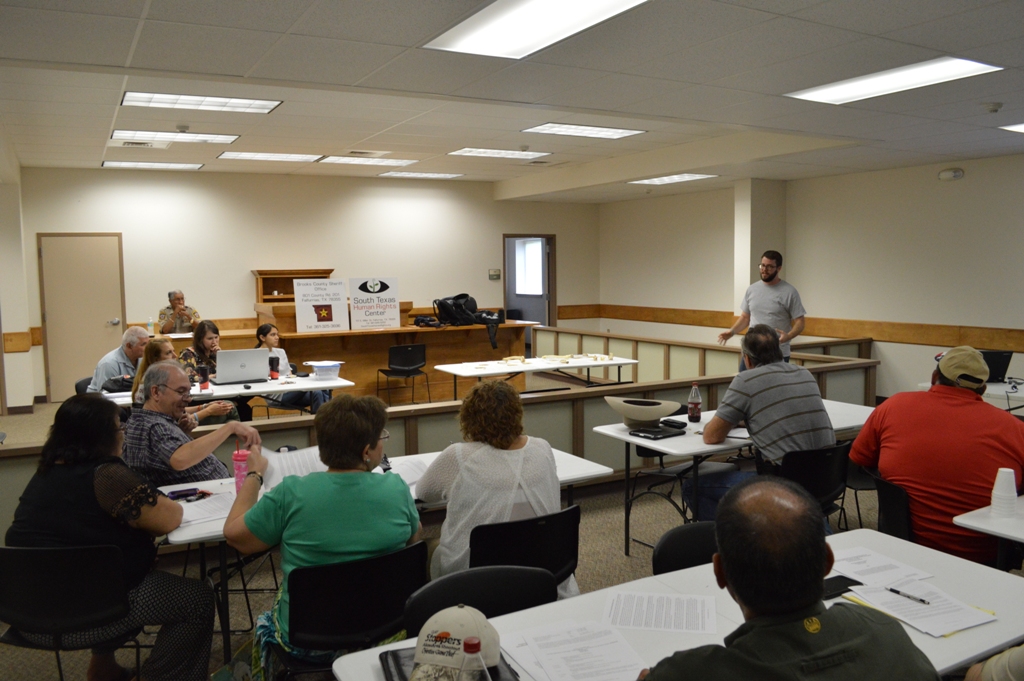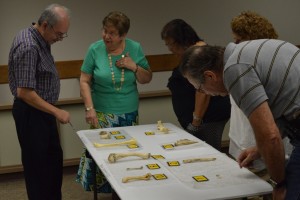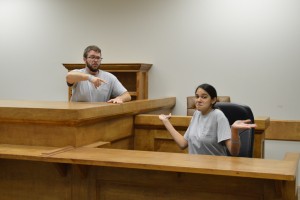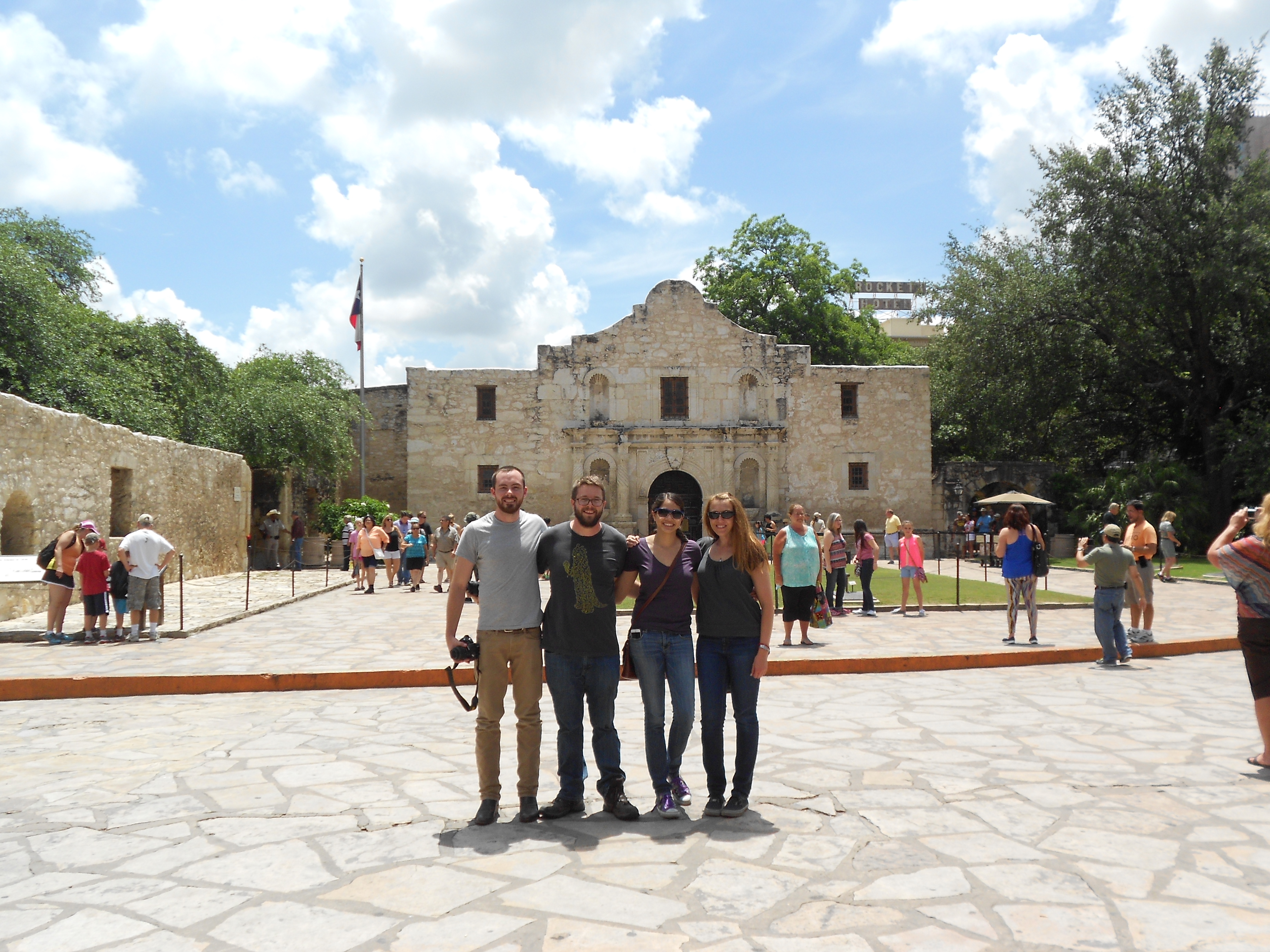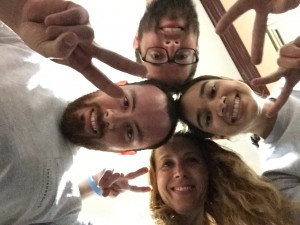
Today we spent an emotional day near the border with Sister Pam of the South Texas Human Rights Center. We spent the hour and a half drive to McAllen listening to Sister Pam tell stories of her work in Brooks County, and the triumphs and struggles she has encountered in her mission for human rights. Our first stop in McAllen was the Home Depot where we purchased the supplies the make the flags for 25 new water stations. After that we went to visit the wall.
Our visit to the wall was short. We were there for less than ten minutes before being chased away by Border Patrol officers. But it was long enough for all of us to reflect on what the wall is and what the wall means. Portions of it were towering and ominous while other areas were made of smaller chain link fence materials.
 My first thought when seeing the wall was that people died to make that line and people are dying to cross that line. The ones that made it are considered the war heroes that helped to define our nations lower extent. The ones who cross it are considered the criminals who break the law.
My first thought when seeing the wall was that people died to make that line and people are dying to cross that line. The ones that made it are considered the war heroes that helped to define our nations lower extent. The ones who cross it are considered the criminals who break the law.
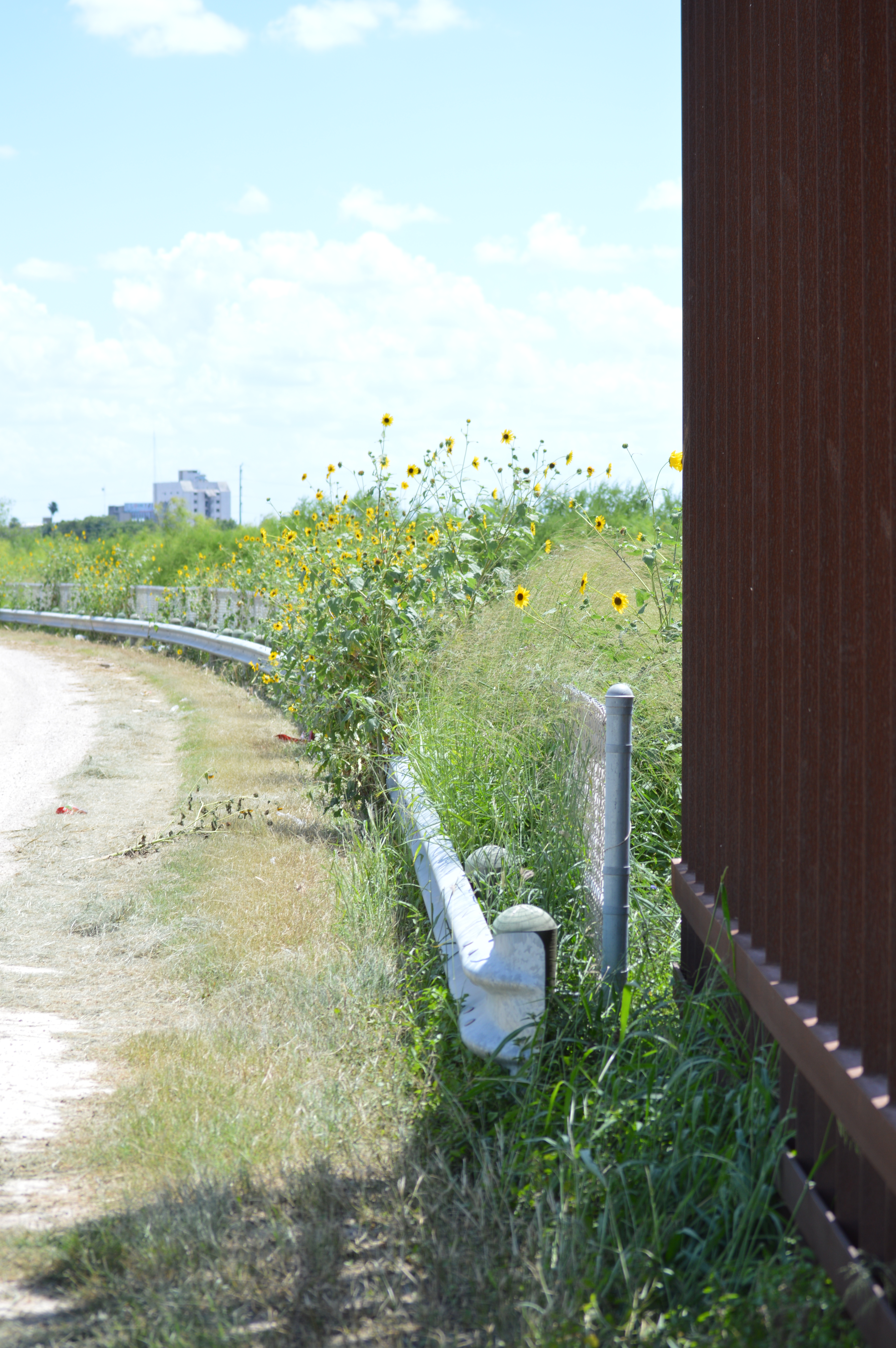 As you look along the fence the large steel bars stop and a simple chain link fence begins. Wild flowers grow on either side with their roots in one country and their flowers blooming in another. As I reached across the fence and picked a flower from Mexico I thought about the fluidity of that line for the flowers. They grow in the direction of the sun. They twist and stretch past the shade that blocks and oppresses them and stretch towards a place where they can get what they need to be healthy and thrive.
As you look along the fence the large steel bars stop and a simple chain link fence begins. Wild flowers grow on either side with their roots in one country and their flowers blooming in another. As I reached across the fence and picked a flower from Mexico I thought about the fluidity of that line for the flowers. They grow in the direction of the sun. They twist and stretch past the shade that blocks and oppresses them and stretch towards a place where they can get what they need to be healthy and thrive.
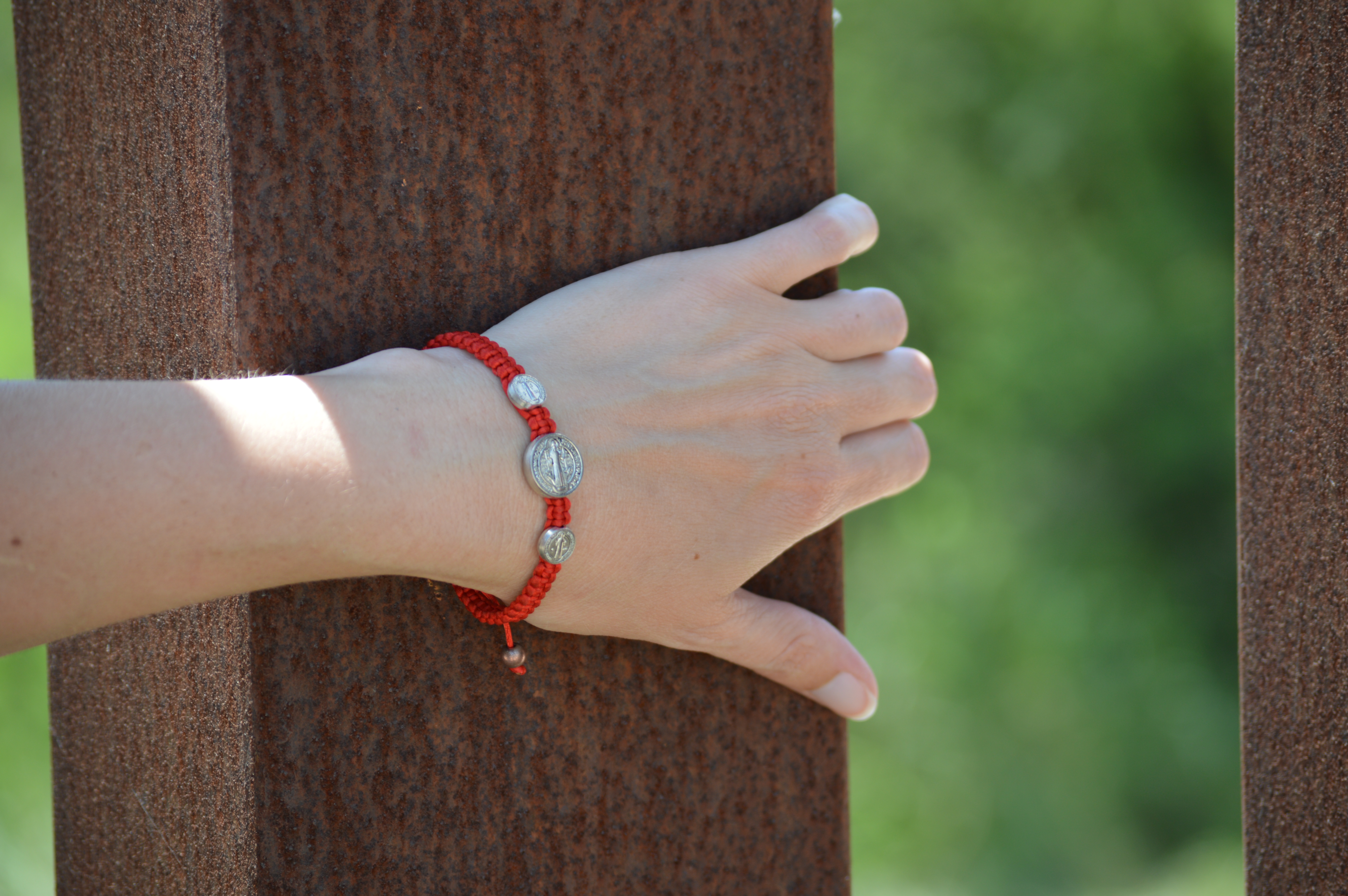 As I touched the bars I was thinking how this line has caused so much recent death. This is the reason so many bodies were (and still are) buried in Sacred Heart Burial Park, and so many bodies are being recovered from local ranches.
As I touched the bars I was thinking how this line has caused so much recent death. This is the reason so many bodies were (and still are) buried in Sacred Heart Burial Park, and so many bodies are being recovered from local ranches.
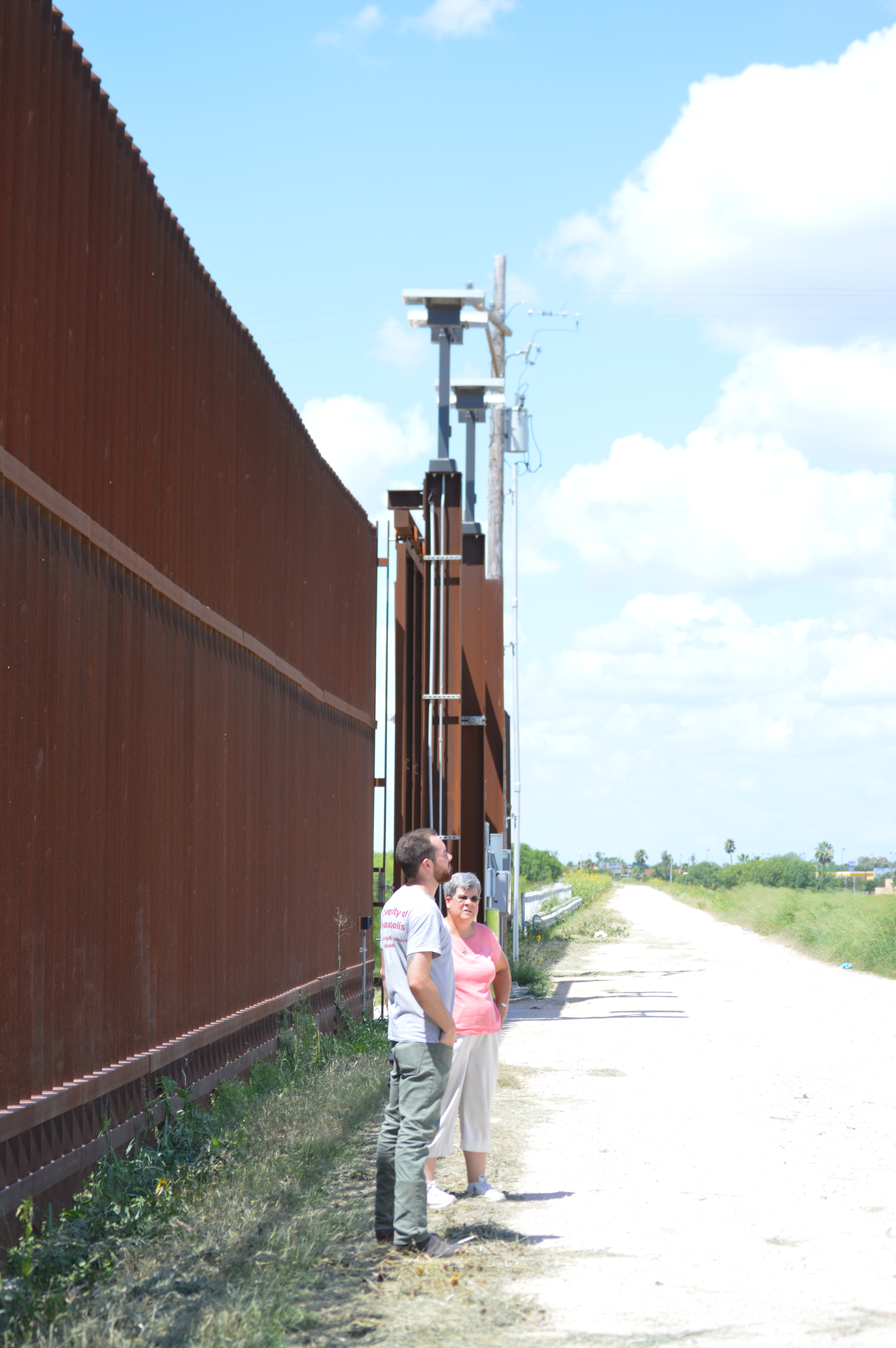 After the wall Sister Pam took us to the Sacred Heart Church where the Catholic Charities of the Rio Grande Valley provide humanitarian services at the Humanitarian Respite Center. We got to assist a refugee family as the arrived at the Center. My family was a young mother and her two daughters ages 3 and 5. I’ve never seen faces look so completed exhausted. The children came into the center with sad and vacant stares. We made sure to smile as much as we could, especially at the children. After helping the family get basic personal hygiene items and a warm dinner, I got to help the family pick out a clean set of clothing. The items were used but clean. I was paired with a local high school student who volunteers at the center regularly. We brought colorful outfits and glittery shoes over to the girls and watched their faces change. They held the little shoes and looked at the sparkles, not even realizing the glitter had already been worn off the toes of the shoes by the last owner. Seeing their eyes start to shine is a moment I will remember forever. They are like the flowers blooming on the other side of the fence. They are finding their sunshine.
After the wall Sister Pam took us to the Sacred Heart Church where the Catholic Charities of the Rio Grande Valley provide humanitarian services at the Humanitarian Respite Center. We got to assist a refugee family as the arrived at the Center. My family was a young mother and her two daughters ages 3 and 5. I’ve never seen faces look so completed exhausted. The children came into the center with sad and vacant stares. We made sure to smile as much as we could, especially at the children. After helping the family get basic personal hygiene items and a warm dinner, I got to help the family pick out a clean set of clothing. The items were used but clean. I was paired with a local high school student who volunteers at the center regularly. We brought colorful outfits and glittery shoes over to the girls and watched their faces change. They held the little shoes and looked at the sparkles, not even realizing the glitter had already been worn off the toes of the shoes by the last owner. Seeing their eyes start to shine is a moment I will remember forever. They are like the flowers blooming on the other side of the fence. They are finding their sunshine.
~KEL
